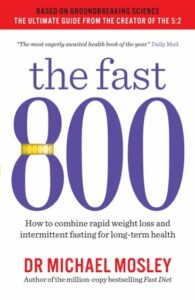By David Saunders | UPDATED: 11:28, 26 March 2020
The recent outbreak of Covid-19 coronavirus has, understandably, caused widespread worry and anxiety.
When this happens people commonly turn to comfort foods. But sugary, fatty treats are the worst things you can eat if you want to keep your body, brain and immune system in good shape.
Dr Clare Bailey
GP and wife of Dr Michael Mosley, Dr Clare Bailey provides her expert advice on the link between the mind and body, and how to eat mindfully to reduce stress.
Dr Bailey says: “While prescribed medication and counselling can be helpful, research now shows that our diet can also play a key role in managing stress and sleeplessness”.
“The link lies in our gut; two to three kgs of microbes live in the digestive system, and amongst other things they produce neurotransmitters”.
“These chemicals convey messages from the gut, through the nervous system to the brain – impacting our mood and anxiety levels”.

“80% of our serotonin (our happy hormone) is produced in the gut – so the healthier the gut the more emotionally resilient we are.”
And the better we are feeling the easier it is to sleep. Create a positive cycle of eating better, sleeping better and reducing stress. Combine these and you will also improve your body’s ability to fight infection.
Dr Bailey shares her top tips for eating to boost the gut/brain axis and our ability to cope with our stress levels:
1. Think Mediterranean: Eating a low-carbohydrate Mediterranean diet rich in different coloured fruits and vegetables, will give you the best chance of getting the wide variety of antioxidant and anti-inflammatory phytonutrients your body needs. The high fibre content is a great way to boost your microbiome, the trillions of microbes that live in your large intestine and which are so important for your health. Olive oil, common within the Mediterranean diet helps reduce gut inflammation. Try it as salad dressing or drizzled over some cooked vegetables for a double whammy and it makes all that veg, beans and lentils taste so much better.
2. Eat fertiliser foods: It is possible to correlate a healthy diet with a healthy mind. Prebiotic foods form the foundation of a psychobiotic diet – a vegetable and fibre rich one that’s good for your brain, keeps your mood up and anxiety levels at bay. They act as the ‘fertilizer’ for the good bacteria and encourage them to proliferate and in time counter the effects of more harmful bacteria. Leeks, onions and garlic are all prebiotics.
3. Ferment to strengthen: Fermented foods like kefir, miso paste, kombucha and sauerkraut all help strengthen the good bacteria in the gut, while fruit, vegetables and whole foods rich in fibre feed the gut microbiome, and allow it to thrive.
4. Grow the good bacteria: If prebiotics act like fertiliser for the gut, probiotics are the seeds – they help the healthy growth of ‘good bacteria’. You can find probiotics in fermented foods like live yogurt, as well as kimchi and sauerkraut. If you take a probiotic supplement, make sure it is clinically proven.
5. Cut down on the sweet stuff: It’s also important to try and avoid (or at least cut down) on processed foods like takeaways, as tempting as they may be during self-isolation, as these destroy the active healthy bacteria in the digestive system. Treat your microbiome with care; feed it well and it will look after you. Eating loads of sugary or processed foods, on the other hand, will just reinforce the “bad” microbes that also live down there. Try one of our microbiome friendly non-fasting recipes from The Fast 800 – www.thefast800.com
A 12-week programme on thefast800.com costs £99 and includes:
· Personalised menus: 800 calories per day, 5:2, or a Mediterranean-style plan, all with vegetarian options. Your online personal assessment will determine the right plan for you (however, you can change your menu preferences at any time throughout the programme).
-
A meal planner: swap recipes in and out, as it suits.
-
Shopping lists that update when you change your meal plan.
-
Nearly 250 easy-to-make and ‘taste great’ recipes.
-
Exercise plans for the novice, confident and expert!
-
Mindfulness guidance.
-
A personal tracker.
-
All-new handouts and a library of videos to support learning.
-
An active forum of like-minded colleagues and dedicated health professionals.
Please visit www.thefast800.com to sign up. Instagram #drclarebailey
